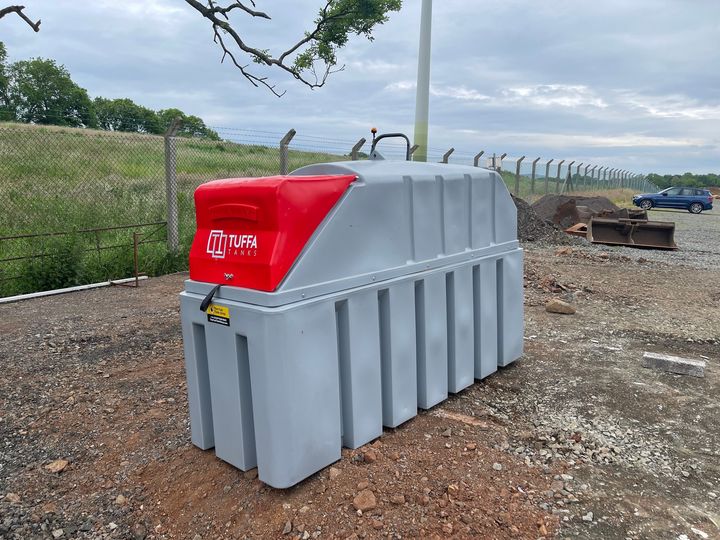Legislation on who can use red diesel has changed since 1st April 2022 as part of the government’s endeavour to meet carbon reduction targets. Businesses no longer able to use red diesel are advised to deplete existing stocks prior to the deadline. The government has indicated the likelihood of on-site spot-checks and HMRC auditors require evidence of previous red diesel purchases and usage volumes. Those swapping from red diesel to white diesel are not being advised by the government to get tanks and piping flushed – this is limited to fuel suppliers and businesses switching to biofuels. However, those with old fuel tanks, particularly if diesel bug has been an issue, can use this as an opportunity to upgrade to a new diesel tank.
Who can no longer use red diesel from 1st April 2022?
Industries no longer able to access rebated red diesel include:
- Construction and road maintenance
- Logistics and haulage (including refrigeration units)
- Mining and quarrying
- Airport operations and ports
- Manufacturing (e.g. ceramics, steel, timber)
- Road maintenance
- Airport operations
- Oil and gas extraction
- Plant hire, logistics or waste management
- Commercial heating and electricity generation
Who can use red diesel from 1st April 2022?
Industries still able to access rebated red diesel include:
- Agriculture (including fish farming, forestry and horticulture)
- Non-commercial power generation (e.g. heating homes, hospitals and religious buildings)
- Marine (including fishing & water freight but excluding private pleasure craft in Northern Ireland)
- Rail

Why is the UK Government removing rebated fuel from most industries?
As stated on the UK Gov website, removing the rebated fuel for most industries will have the effect of making businesses more accountable for their fuel usage by promoting fuel efficiency and low carbon alternatives such as HVO. At the time of writing, political situations with Russia have pushed the price of fossil fuels to a record high, further exacerbating the increased costs faced by industries no longer able to access rebated fuels. It’s now more important than ever for businesses to enhance their fuel security measures and maximise fuel usage.
How are businesses adapting to the red diesel ban?
The higher value of white diesel and lack of red dye increases the risk of fuel theft and means there is a greater requirement to monitor and improve fuel efficiency. To help achieve this, businesses are increasingly turning to Fuel Management Systems. A reputable FMS (like the Horn FMS available on Tuffa diesel tanks) can protect against unauthorized usage with a key fob or code required to dispense fuel. Additionally, actionable data can be collected to help identify underperforming vehicles or drivers who will benefit from fuel efficiency training.
Should I change to biofuels?
As suggested by the UK Government, the removal of rebated diesel is also an opportune time to switch to biofuels. While there is currently no financial incentive to do so – those not entitled to tax relief on red diesel won’t be on green fuels either – there are other advantages from switching to the second-generation biofuel HVO. Most importantly, HVO usage reduces CO2 emissions by up to 90%. However, it also reduces particulate matter and is highly resistant to diesel bug meaning it is typically better than diesel for engine health and decreases the ageing time of engine oils. HVO also has a longer storage life of around 10 years compared to diesel’s 1 year. Again, this gives an advantage to larger storage tanks to benefit from bulk buying fuel without the worry of fuel degrading over time. Those switching from red or white diesel to HVO can rest assured that most fuel tanks.









